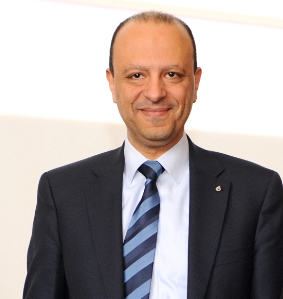Mai Abdel Hamid, CEO of the Social Housing and Mortgage Finance Fund (SHMFF), announced that the Fund is studying the issuance of green bonds in cooperation with international institutions and local banks. The move aims to diversify funding sources, improve financing terms, and support the sustainability of the “Green Architecture” initiative.
Her remarks came during a panel discussion organised by UN-Habitat under the theme “Integrated Urban Communities to Improve Quality of Life”, part of the Innovation for Impact conference aimed at boosting private sector engagement in sustainable development.
Abdel Hamid gave an overview of the presidential “Housing for All Egyptians” initiative, which targets low- and middle-income citizens. She said the programme has markedly improved the quality of life for beneficiaries by facilitating access to adequate housing.
She emphasised that the Fund plays a vital role in executing the state’s housing strategy for low-income groups, in line with their constitutional right to shelter. While initial uptake was limited—with only 10,000 applicants during the first round—demand has since surged, with over 500,000 citizens applying in the latest offering announced late last year.
This growth, she noted, reflects strong state support for beneficiaries, which covers 50% to 60% of unit prices through various forms of direct, indirect, and interest rate subsidies. The programme now stands as a cornerstone of Egypt’s broader social protection agenda.
Abdel Hamid highlighted that 85% of the Fund’s housing units are being developed in new urban communities, with the remaining 15% located in existing governorates. The Fund monitors occupancy rates, service delivery, and maintains continuous communication with residents to ensure long-term programme sustainability.
She added that SHMFF’s adoption of a mortgage finance model—implemented in partnership with both public and private banks—has underpinned the initiative’s continuity. The number of participating banks has grown from just four at the programme’s inception to 30 banks and financial institutions today.
The Fund also relies on around 2,000 private-sector contractors to deliver its projects, generating approximately four million direct and indirect job opportunities.
To date, 730,000 housing units have been completed, with another 300,000 currently under construction.
Abdel Hamid reaffirmed the Fund’s commitment to environmentally sustainable development through the “Green Architecture” initiative. She explained that the goal extends beyond constructing eco-friendly housing to creating entire green communities.
Last year, a design competition for the initiative’s second phase was launched in collaboration with the National Housing and Building Research Centre, the World Bank, the International Finance Corporation, and other international partners. The winning design will be used to construct 30,000 green housing units.
Looking ahead, Abdel Hamid acknowledged the need to integrate real estate developers into affordable housing schemes for low-income citizens. Talks with developers on this front are ongoing.
She also revealed that SHMFF is working with financial institutions to support small enterprises tasked with maintaining housing units through a dedicated maintenance company—an initiative aimed at boosting employment and service quality.




